SAN MIGUEL DE ALLENDE, MÉXICO – Victoria Collier and Ben Ptashnik are a couple with a vision: they want to teach how to create self-sustaining ecological community where people can grow food, disengage from destructive systems with the use of renewable energy and green building, and create community projects that benefit everyone while raising the quality of life for the next generations.
And they are doing it.
It’s been weeks since I was at their Tikkun Eco Center, and even after a couple of washing cycles and hours hand picking, tiny seeds are still sticking to my shoes and clothes. I got them walking through the grasses in the milpa when Victoria and I harvested corn to feed the villagers who came to plant trees as part of a community water harvesting and reforestation project.
Para leer este artículo en Español haga click AQUÍ
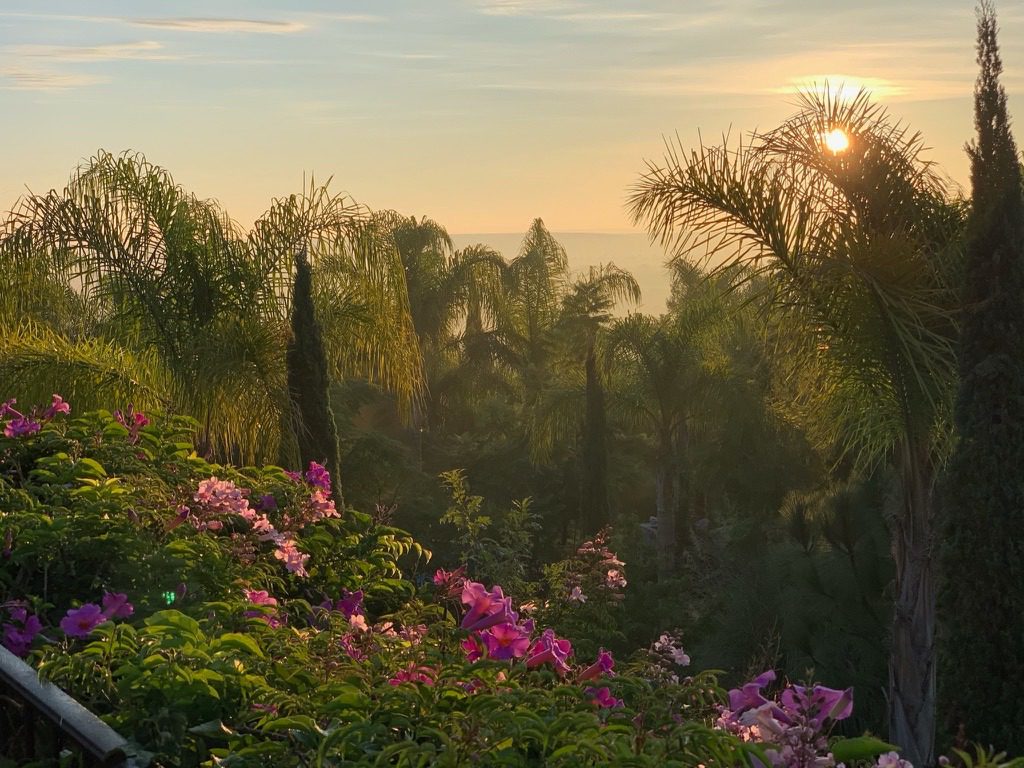
That morning, I woke up listening to the birds singing. The first thing my eyes saw was an explosion of colors at my window with flowers, fragrant plants and dancing hummingbirds. I had been invited to spend the weekend at Tikkun by Victoria and Ben. They were celebrating their birthdays and decided to throw a party, make a big meal and invite both their expat friends and people from the community who are supporting their ecological projects.
For the last 15 years Victoria and Ben have built and managed Tikkun, a three-hectare non-profit Permaculture center on the outskirts of San Miguel de Allende, Guanajuato. Their dream was to plant trees and develop water harvesting systems that would transform the arid, barren land into a fertile ecosystem.
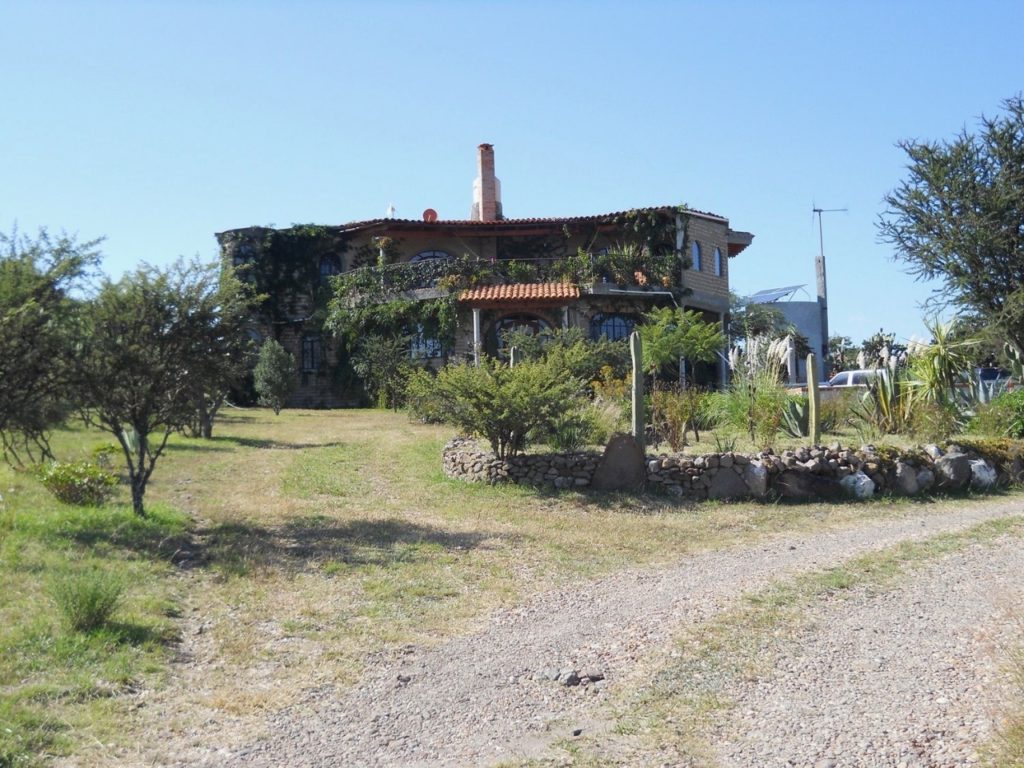
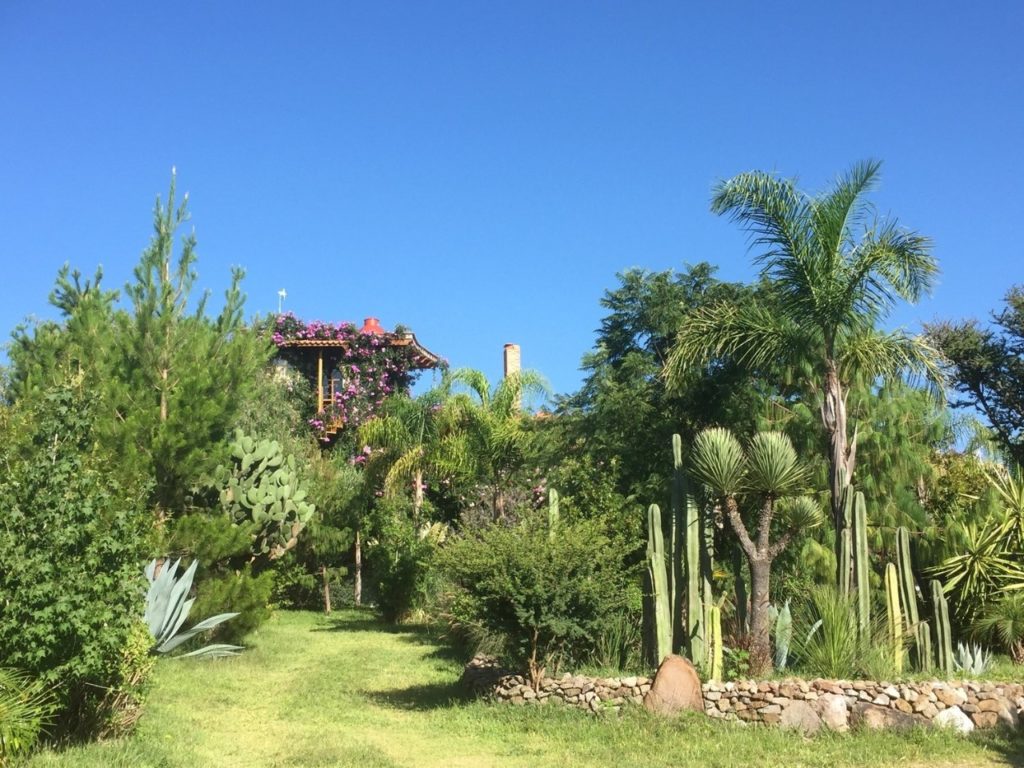
It has not been an easy task. The area has a severe scarcity of water due to the soil erosion caused by deforestation, overgrazing and over-planting. Agricultural factory farms abound.
“This whole area has a lot of straws in the ground and they’re sucking the aquifer dry,” Ben explained. “They’re growing alfalfa and mushrooms and they’re irrigating all the time. There’s really not much you can do about it. It’s private land and the wells are permitted. So there’s only one resource, and that’s rainwater.”
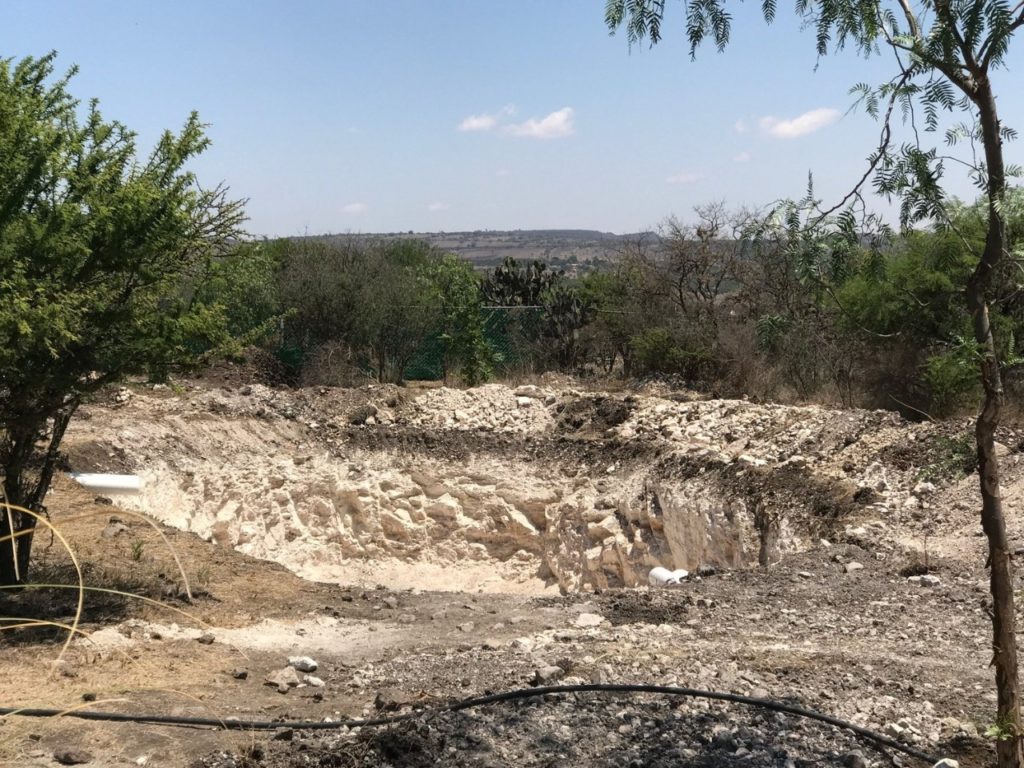
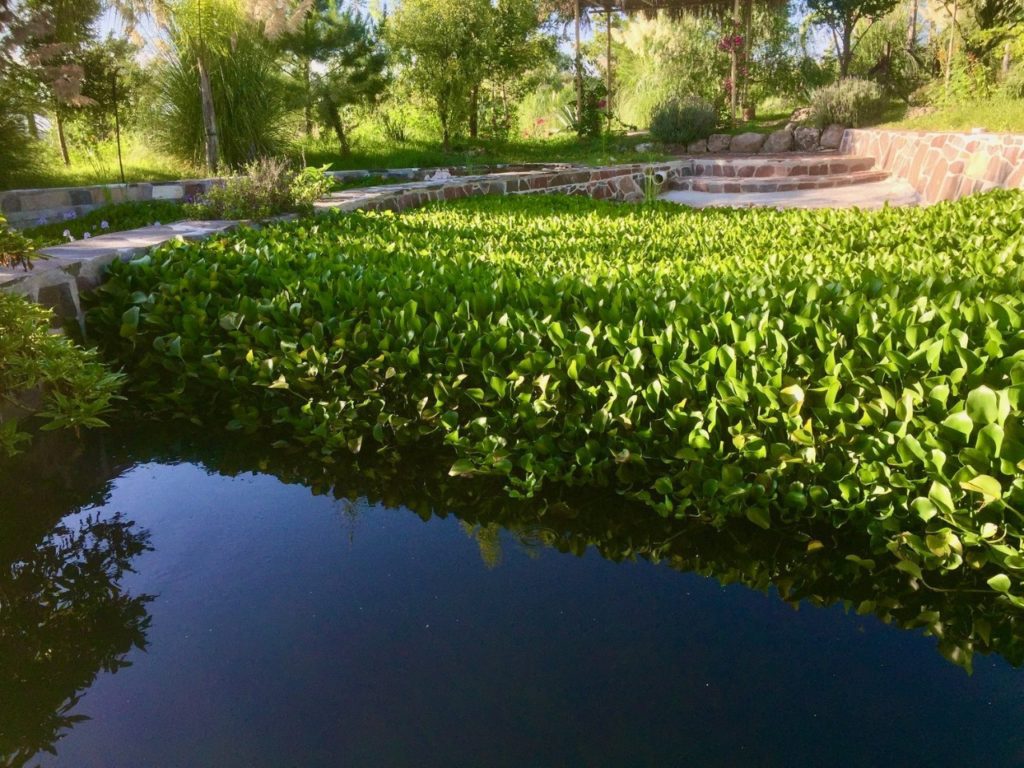
The first thing they began engineering was a series of Dryland Permaculture water catchment systems to collect the annual monsoon rains in cisterns and ponds, which they stocked with edible and ornamental fish. They use this nutrient-rich pond water as well as greywater to irrigate the gardens and trees that surround their adobe houses. Now the land has been transformed not only into a shady oasis fluttering with butterflies and birds, but into a farm with a treasure of food: corn, squash, tomatoes, beans, broccoli, onions, carrots, beets, lettuces, fruit trees and many other edible and aromatic plants.
But even though Ben and Victoria had resolved their own living situation, they recognized that for most of the people in the surrounding communities, growing their own food and keeping livestock was not a possibility due to increasing drought, which leads many to migrate to the cities and even to the US for better opportunities. Ben, whose last name, Ptashnik, poetically means “birdkeeper”, was born in Israel in the Arab village of Jaffa. Being the son of Jewish immigrants and Holocaust survivors who fled to the US when he was a child, he feels this problem very deeply.
“Every family in this town used to have sheep, goats, cows and chickens,” he said. “They were completely sustainable farmers. Now, three fourths of the people have to go to work in the mushroom factory or in the chili factory or go clean hotel rooms. Half of my workers leave and go to work across the border. One of them disappeared about six years ago. I would prefer that they could survive here. The sustainability of the local agrarian economy here in Mexico depends on local water systems restoration.”
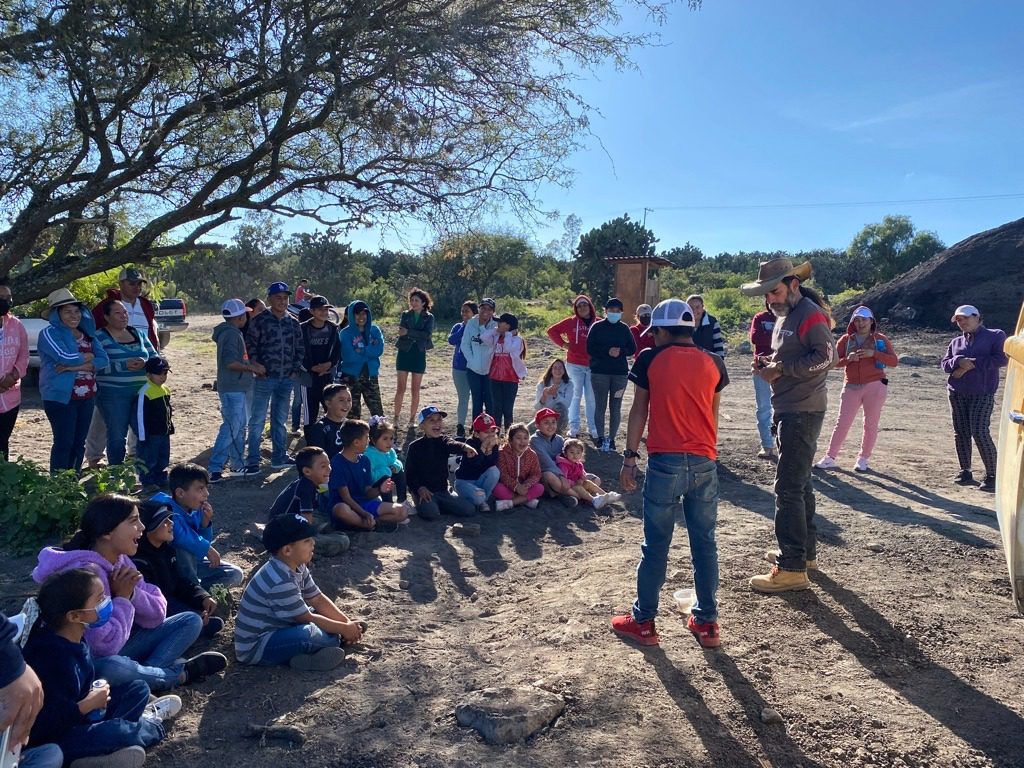
Ben named Tikkun Eco Center after the Hebrew concept of Tikkun Olam, which means to repair the world. For Ben, that repair starts with his community.
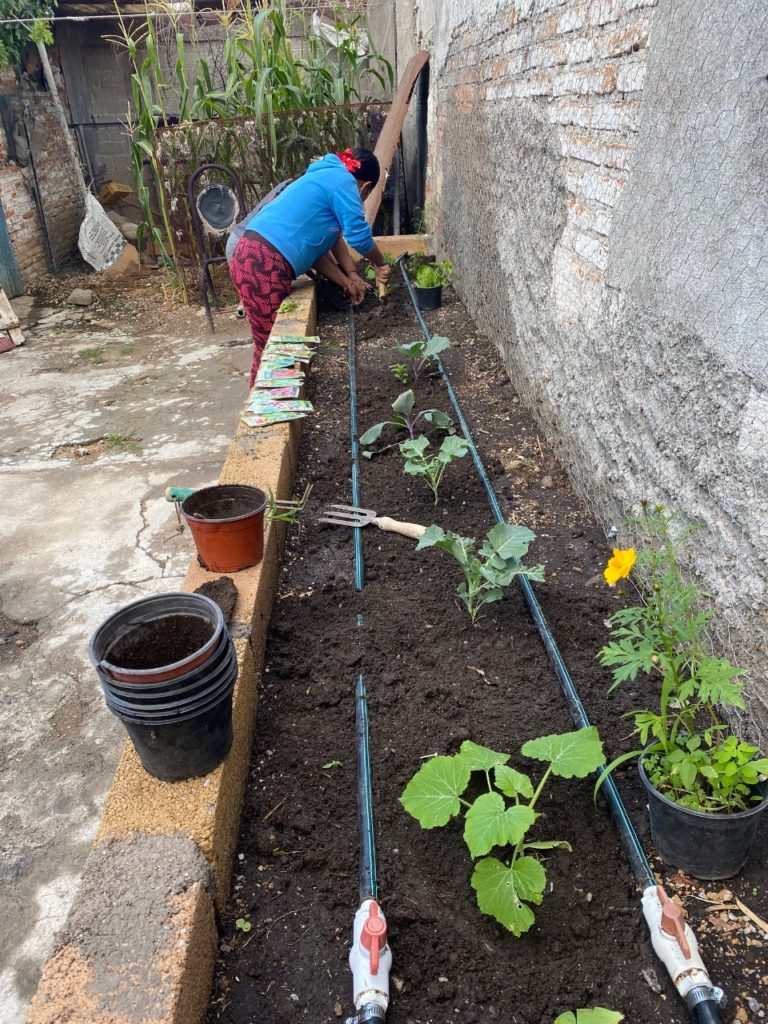
During the Covid-19 pandemic, Victoria and Ben created a dispensa, a community garden and food bank, and for two years they provided organic vegetables, corn and beans to their most vulnerable neighbors. During the worst of the pandemic they also donated essentials like toilet paper and cooking oil. For more long-term sustainability, they began to help local villagers grow their own vegetable gardens, but then realized there was not enough reliable water to sustain them. It became obvious that the water issue was the first to be solved.
Ben and Victoria were inspired by the remarkable project in India called the Water Cup, a contest between villages to create the most water catchment systems in a 45-day period. The Water Cup has transformed life for tens of thousands of agrarian villagers who now no longer need to leave their homes to seek work in cities.
Near Tikkun there is a 200-year-old water reservoir that was once a vital source of freshwater for three surrounding rural communities: Órganos, San José de Gracia and Talega. Over time the reservoir filled with mud, causing it to dry out for most of the year, and to breach the dam when there were heavy rains. Ben and Victoria decided to restore the reservoir. They brought engineers who advised them how to dredge the mud, build rock retaining walls, and raise the dam. After one month, they removed 1,400 large truck loads — around 25,000 cubic meters — of soil from the reservoir, which they are now using to reforest the surrounding land.
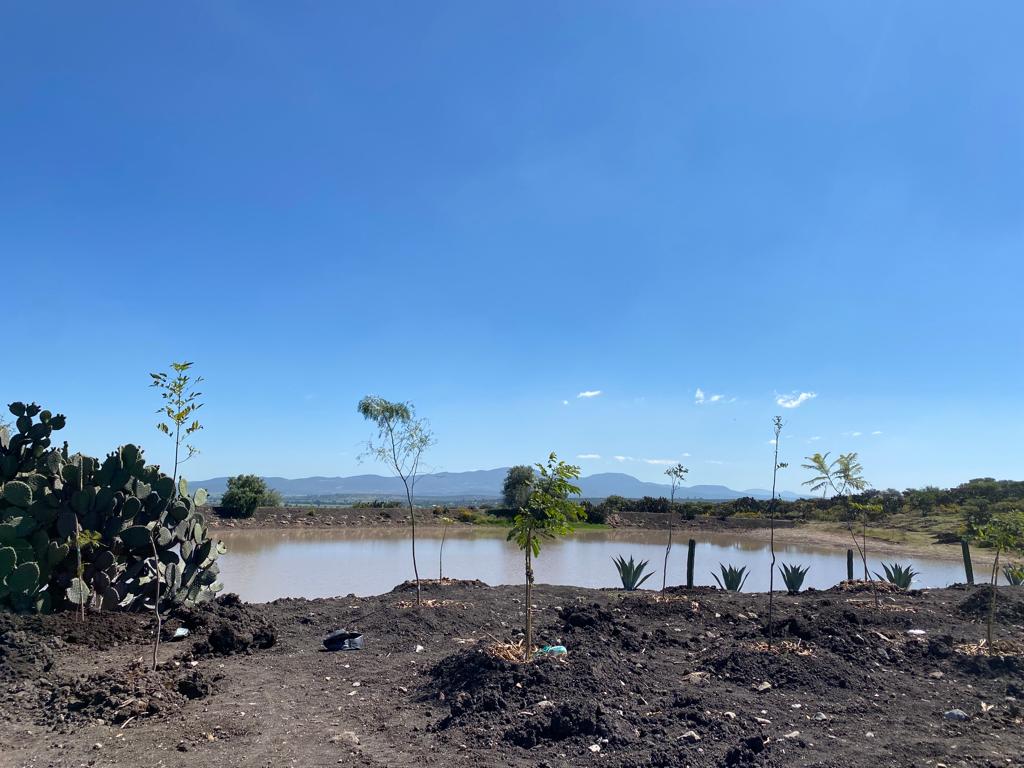
They were able to gain the collaboration of the Ecology Department in San Miguel, which donated over 1,000 trees and brought truck loads of Hyacinths (lirios) from the Allende dam, to mulch the new saplings so they will survive the dry season, while helping to build the organic matter in the soil. The lirios are currently a major ecological crisis in the Presa Allende, where they are choking the lake and ruining life for local fishermen. Ben and Victoria want to show how they are also an invaluable resource when used for reforestation.
Now, six months since they began, where there used to be only nopales and a few scrubby huizache trees, there is a small forest growing with ceibas, magueyes, pirules, jacarandas, fresnos, weeping willows, poplars and other native trees. The capacity of the dam has increased from 2 million liters of water to 25 million.
“We want this project to be a model of holistic ecological repair,” said Ben. “Neglected reservoirs like this exist in villages all over Mexico. Communities can restore them, regenerate their soil and their water security. Then they can start planting trees and crops, and doing animal husbandry.”
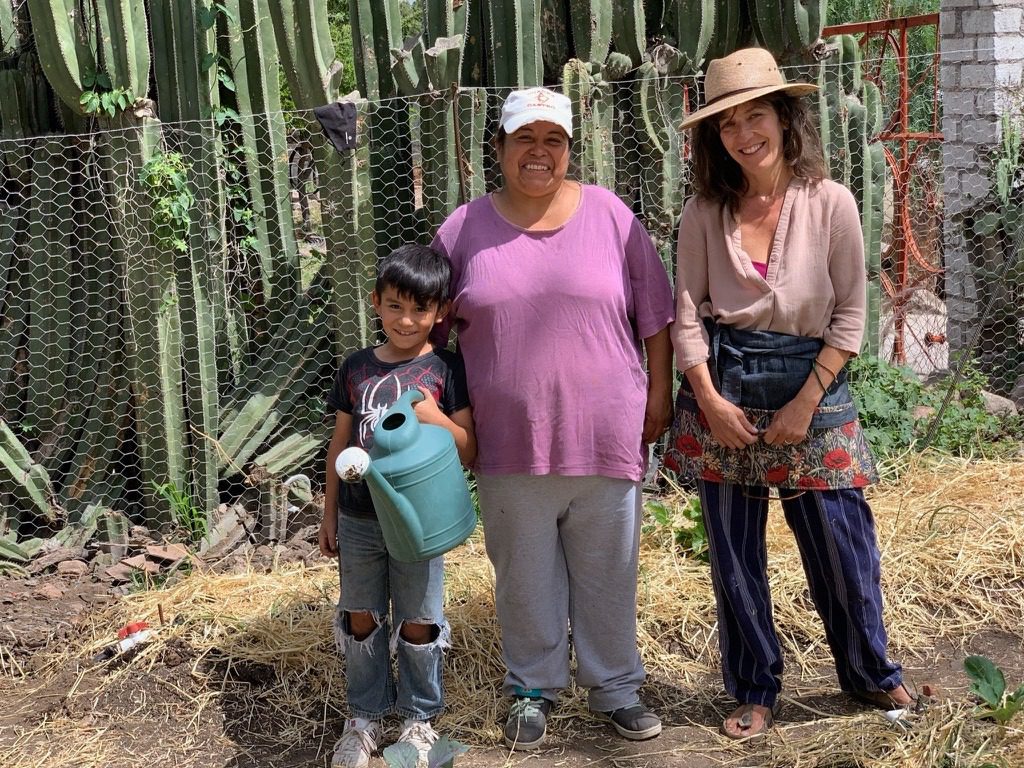
Before they started the pond restoration, they took the idea to the local villages and they voted on it. “We had community meetings where we explained what we were doing, and the communities all decided that they wanted it.”
Entire families have been attending work days for the project every Saturday, sometimes a few people, sometimes up to 40 neighbors, to dig holes, carry rocks and plant trees. Even the children have taken part in this effort, like Ernesto Amaya Espinoza, 11, who says it’s a “very beautiful project.”
“It is important to plant trees to take care of the environment, so the animals can feel safe here. I have seen owls, rabbits, squirrels.” He says he imagines in a few years there will be a fresh and beautiful park full of animals around that pond.
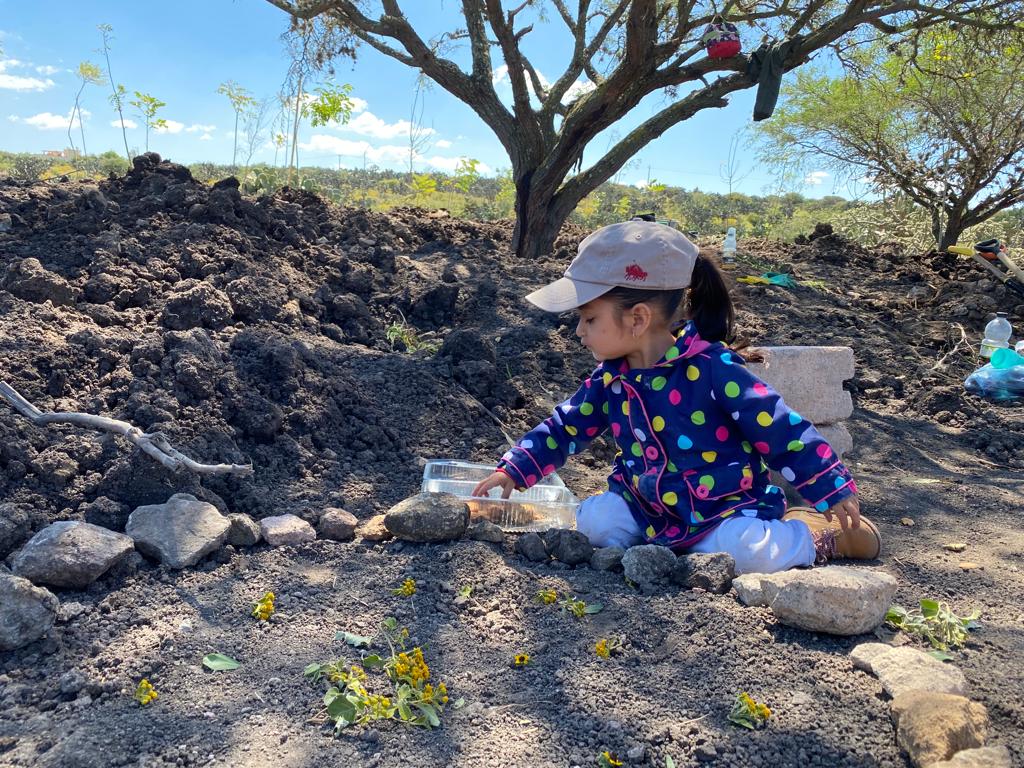
The San Miguel municipality has promised to install a playground and soccer field for the local children. Together they are working to create a community park where children can play, with shade and fresh water for everybody. Tikkun has stocked the new reservoir with Tilapia fish from their own ponds.
The religious community has debated the true meaning of Tikkun Olam for generations. But for Victoria, it’s clear.
“Tikkun olam is a Hebrew term that means to repair the world,” she says, “but how you do that is up for discussion. To us, it means literally repairing the planet. The broken ecosystems, the damage that we’ve done. That’s the most important thing that we can be doing as people. That’s what we should be investing in, what we should be using our resources for. This is our way. But there are many ways, right?”
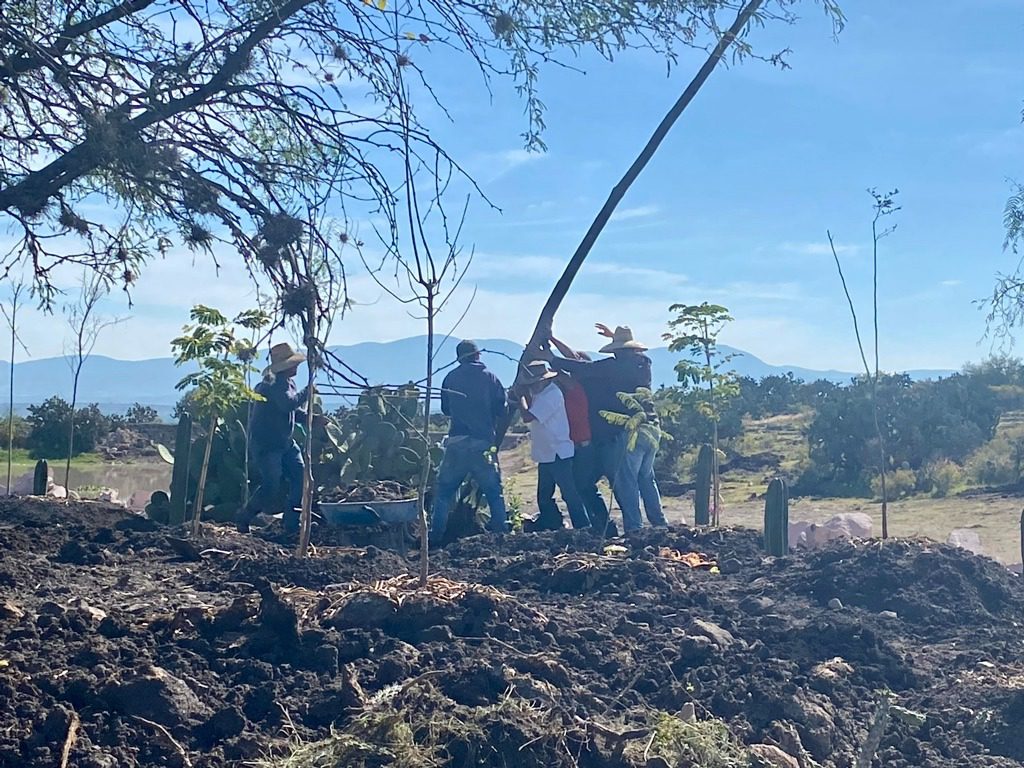
The reservoir project ended up being much bigger than the couple had anticipated, and they invested their entire savings in it. “We got a small grant to start,” said Victoria, “but then it just became so much bigger and we couldn’t stop it once it started.”
Now that they’ve spent all their personal reserves, they’ve turned to local community foundations for further funding.
“There is enough money in the world to do this work everywhere, to regenerate the land and make resilience for communities, so that during climate change we don’t have to start killing and eating each other,” Victoria says, with an ironic laugh. “You know, we really don’t want to have to eat each other. It’s better to have food and water, to have systems of resilience that we build together.”
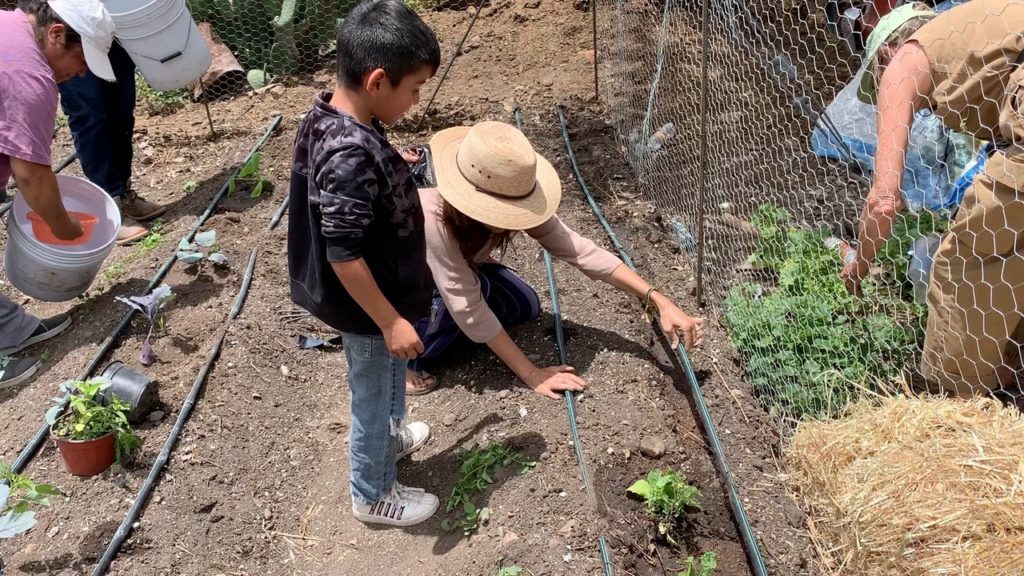
Just a few days after my visit in late October, they received the authorization for a grant to finish this project from the San Miguel Community Foundation.
“This will allow us to finish building the dam and creating the solar pumping station to bring water up to the village for people who want to grow their home gardens. Now we can plan on expanding our home garden project, helping villagers grow their milpas and other vegetables and fruits,” says Victoria.
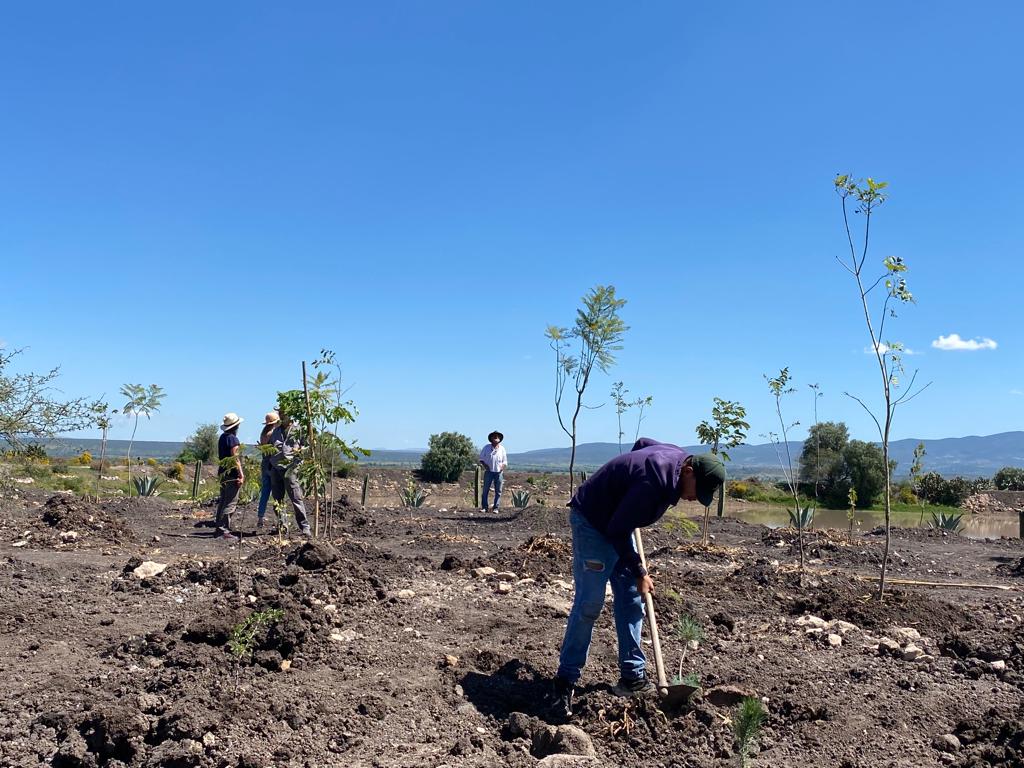
One beautiful thing about this project is that it has brought together the people from the local communities. Even families that used to have disputes for political reasons have overcome their differences to work together. Also, some expats and townspeople from San Miguel have been involved in the efforts. The day I was there in late October, we all celebrated with music, food and a beautiful bonfire at sunset.
“It is a community effort, and I think the community is really happy with it. This is going to be a beautiful forest one day.” says Victoria. Ultimately, the project belongs to the community, she emphasized, it’s on their land, so their input and involvement is key to its success. “We want them to like it and care for it. They’ve got to keep these trees alive. It’s very empowering for the people here.”
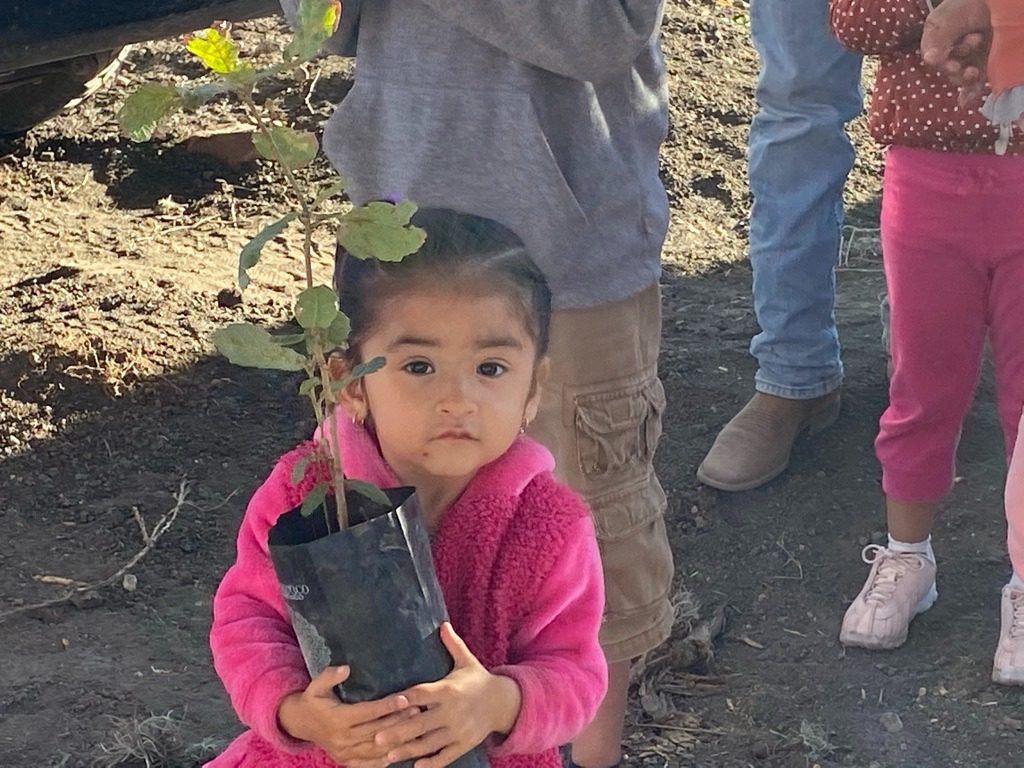
Tikkun also offers education programs; for example, they received 45 students from the Universidad Autónoma de México (UNAM) to camp on their land and learn about permaculture. The students left very enthusiastic with the new concepts and want to continue collaborating with the project.
One of the best parts of my brief stay at Tikkun Olam was the rich conversations we had. Victoria’s words on our last day stayed with me.
“Personally I want to learn how we can really connect with the planet, not just think nice thoughts about the planet, but actually connect and listen and communicate.
Are there ways that we can learn to hear the voice of nature again? Because many indigenous peoples still have that kind of connection. We in the modern culture definitely don’t have it now because we’ve forgotten. Can we relearn it? Can all of us in our everyday lives find ways of connecting to Mother Nature that are real? That’s my question.”
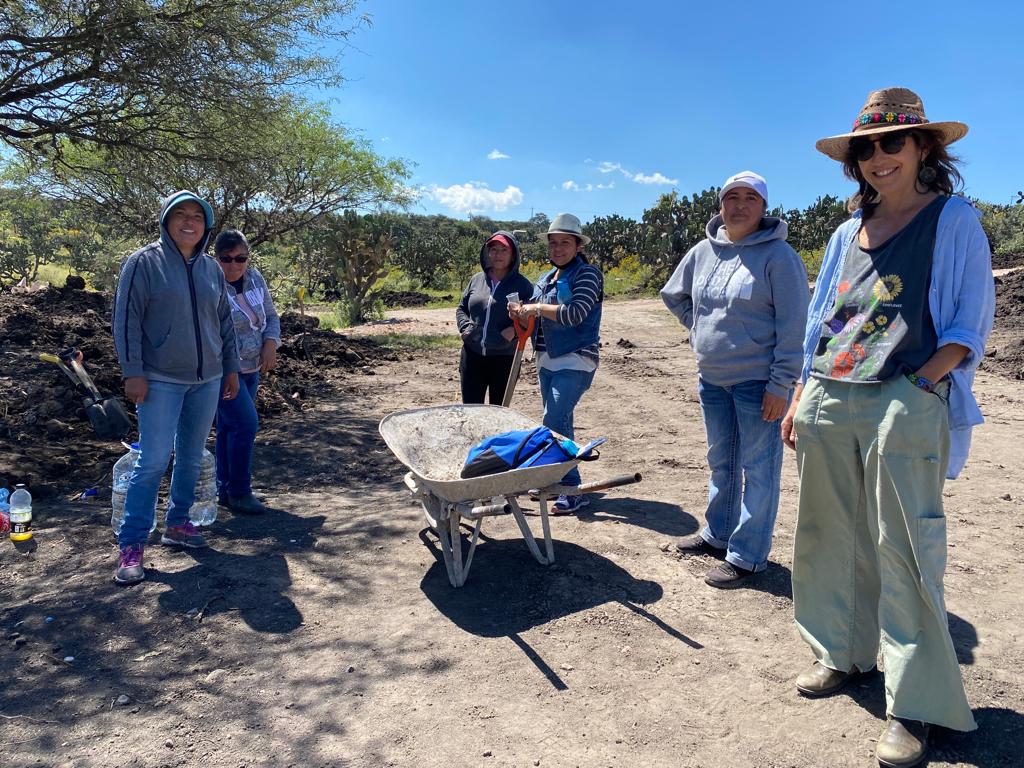
Victoria recently spent time with a wise man who taught that we should live our lives “impeccably.” I asked her what that means.
“I think being impeccable means doing your absolute personal best, whatever that is,” she told me. “No one else can say what that is. It is not perfection, because what is perfection? That’s just somebody else’s standard. Impeccable means living up to your own standards, following through with what you promise, what you agree to, however you want to live your life. What do you want for yourself? What’s the best that you can do? That is what’s impeccable for you. That’s a lot these days, just to do that.”
As I keep picking the seeds from my shoes and clothes, I reflect. If these seeds stick so strongly even after three weeks of travel, where I visited four different cities spreading seeds on every step, how much will the seeds of consciousness, inspiration and environmental creativity that I absorbed during my days in Tikkun stick to my soul? I certainly hope I keep spreading them for the rest of my life.
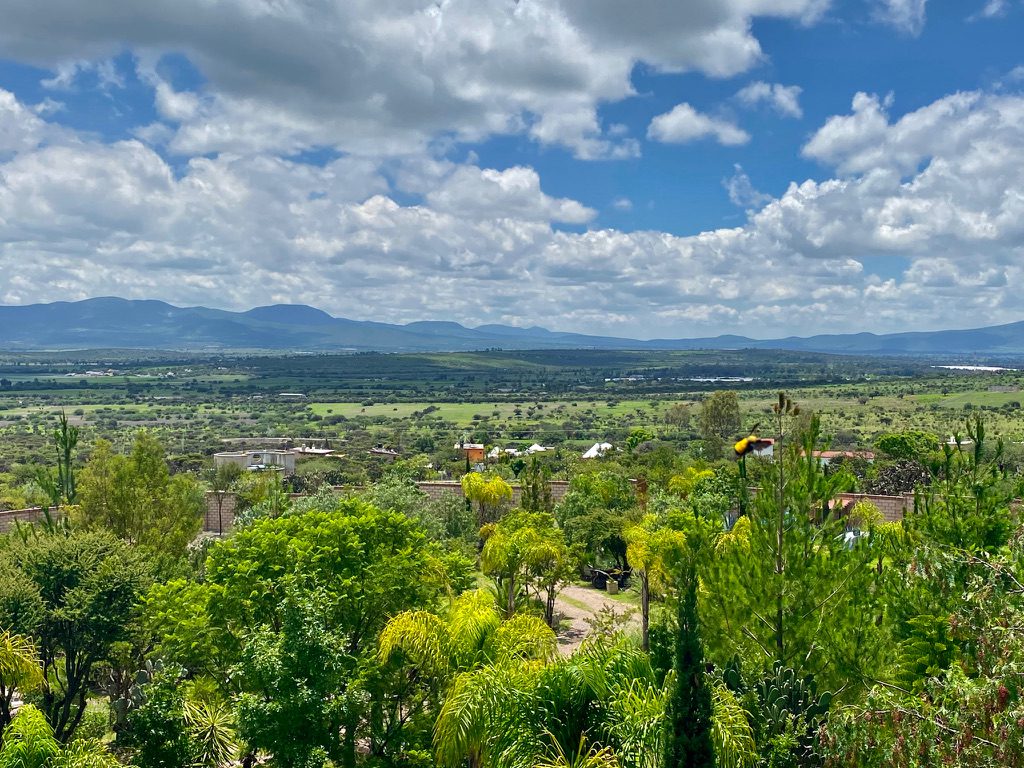
- Tonalá awakens: Spirituality Expo revives the sacred legacy - December 11, 2025
- Last Chance to Save Mexico City’s Water Forest - June 1, 2024
- March 8: ‘Identity can never be silenced.’ Misak women fight back in Colombia - March 8, 2024
Mexico Permaculture regenerative agriculture Tikkun Olam water harvesting
Beautiful project!
…”a model of holistic ecological repair.”